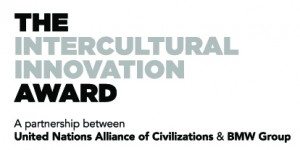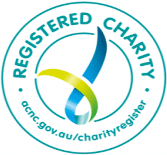Last week on Thursday and Friday, the 5-6th of November, the 2015 FECCA National Conference took place in Sydney. FECCA, the Federation of Ethnic Community Councils of Australia, is the peak national body representing Australians from culturally and linguistically diverse backgrounds. The two-day conference brought hundreds of leading decision makers, scholars, and experts together, all with a collective desire to debate and discuss key issues relating to multiculturalism.
It was positive to have our politicians cohesively acknowledge how a better embracement of multiculturalism will lead to a better future for all Australians. Senator the Hon. Concetta Fierravanti-Wells acknowledged how important it is for Australians to recognise our country’s history of successful migration and how this is a legacy worth protecting. The Hon Tanya Plibersek addressed the tokenistic manner in which multiculturalism is often highlighted, and how “multiculturalism is more than the ethnic food festivals and parades” it is so often limited to. Senator Richard Di Natale confronted how the government cannot support multiculturalism through policy yet repeal s18C of the Anti-Discrimination Act and “open the floodgates to racism”. By our political parties dismissing their governmental differences in order to show a united front in the name of multiculturalism shows a common interest by our democratic leaders in the face of racial discrimination, and how important the issue of racism is to our parliamentary leaders.
The conference held concurrent forums on key issues related to multiculturalism such as equity in disability, productivity through diversity, cyber racism, and multicultural broadcasting and communications. In the forum addressing ‘The Cultural Dividend of Multiculturalism”, Ross Tzannes AM cited Anne Phillip’s quote “Harm could come to our minority groups if we trivialise their culture”, and noted how cultural diversity in the workplace is often paraded around as a marketing tool, without recognising the intrinsic value cultural diversity has in itself. Liz Deep-Jones also explored the idea of multiculturalism in the workplace. Having over twenty years experience at SBS, Liz brought up to the discussion how integral it was for her workplace of the media, in particular, to bring education of other cultures to the forefront of broadcasting. Liz expressed how Australia is a country so rich in diversity, we are able to put on shows such as Living Black, or a news program addressing Chinese Australians that is spoken in Manderin but with English subtitles, to be as inclusive as possible.
In “Enabling Better Health”, key scholars and medical practitioners brought together their unique experience and knowledge of how minority groups often struggle to get access to the Australian healthcare system. Dr. Sara Javanparast expressed her disdain at the resistance of general practitioners to using interpreting services to fully engage migrants with our healthcare system. This apprehension of interpreting services was also of concern to Rosemarie Draper, who has taken action addressing this problem with a health literacy approach. Rosemarie represented the Royal District Nursing Service (RDNS), and showed how the RDNS has created unique talking books that take all cultural diversities into consideration. For example, their talking book on Type 2 Diabetes in Vietnamese is freely available on the RDNS’ website, and provides both written and audible health information in Vietnamese at the equivalent of an English grade 6 level, in order to be more inclusive of the community.
Many more forums were held addressing key areas that have felt the impact and influence of multiculturalism, and all the speakers at the conference agreed that multiculturalism is the necessary narrative for the future of Australia. The conference ended on a positive note, with the 2014 Australian Youth Representative to the United Nations, Laura John, concluding the forum with some personal accounts of her own experiences that led to her personal understanding of what multiculturalism means. The 2015 FECCA conference was an irrefutable success, and All Together Now can’t thank FECCA Chair Joe Caputo OAM for bringing these creative and scholarly minds together to collaborate and discuss the possibilities the lie ahead for the Australian community.


